In 2002, writer-director Gurinder Chadha burst upon the international film scene with Bend It Like Beckham, a joyous film that became a sleeper, appealing to cross-cultural audiences. (It catapulted it then unknown lead Keira Knightley to major stardom).
A British director of Indian origin, Chadha, who is 59, is one of the most underestimated filmmakers working today, considering her rich body of work, Over the past three decades, she has devoted her career to making films about minorities living in England. Early on, her work showcased the trials of Indian women, who must reconcile their traditional and modern values against great odds.
On the surface, her films seem like simple, quirky, and upbeat comedies about the daily lives of immigrants and outsiders, but they actually address many relevant and inevitable socio-political problems that are inherent in situations of culture clash and living in a modernistic society that is not exactly friendly or welcoming minorities.
In many ways, her new film, Blinded by the Light is a companion piece to Bend It Like Beckham, a joyously inspirational but unsentimental serio-comedy, which is grounded in reality. In intent, it is meant as a poignant parallel to the xenophobia of today.
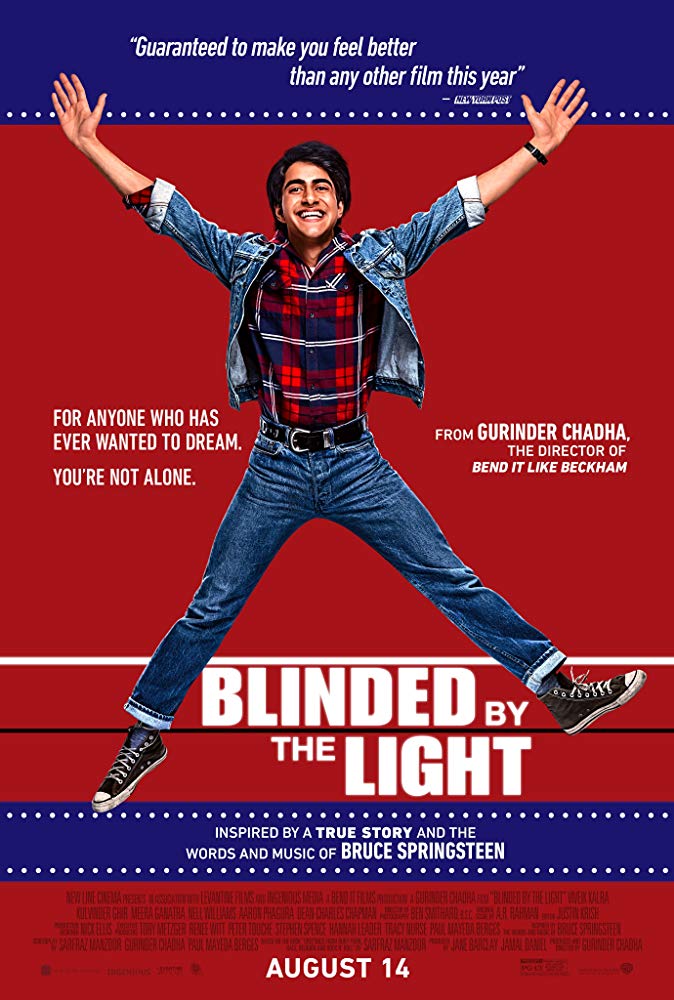
The film, which like other Chadham’s features world-premiered at the 2019 Sundance Film Fest to great acclaim, is theatrically released this week (August 14) in the U.S. by Warner-New Line and in other markets.
The tale is based on the memoir “Greetings from Bury Park: Race, Religion and Rock N’ Roll,” by journalist-writer Sarfraz Manzoor, who co-penned the script with Chadha and Paul Mayeda Berges, but the title derives from a 1973 Bruce Springsteen song of the same name.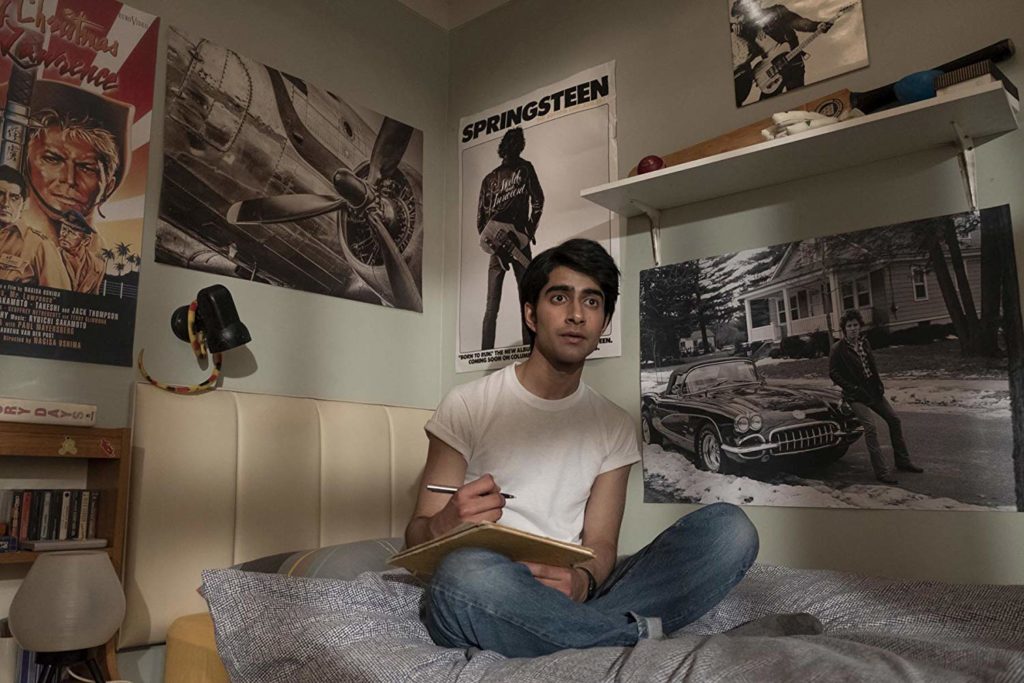
Viveik Kalra stars in the lead role, along with Hayley Atwell, Rob Brydon, Kulvinder Ghir and Nell Williams in supporting roles.
Set in 1987, during Margaret Thatcher’s conservative regime, the tale centers on Javed, a British Pakistani boy living in the town of Luton.
His status and living conditions are far from ideal or even optimal. First, there is the termination of his father’s recent job, and then there are the skinheads in his neighborhood, not a particularly friendly or welcoming crowd.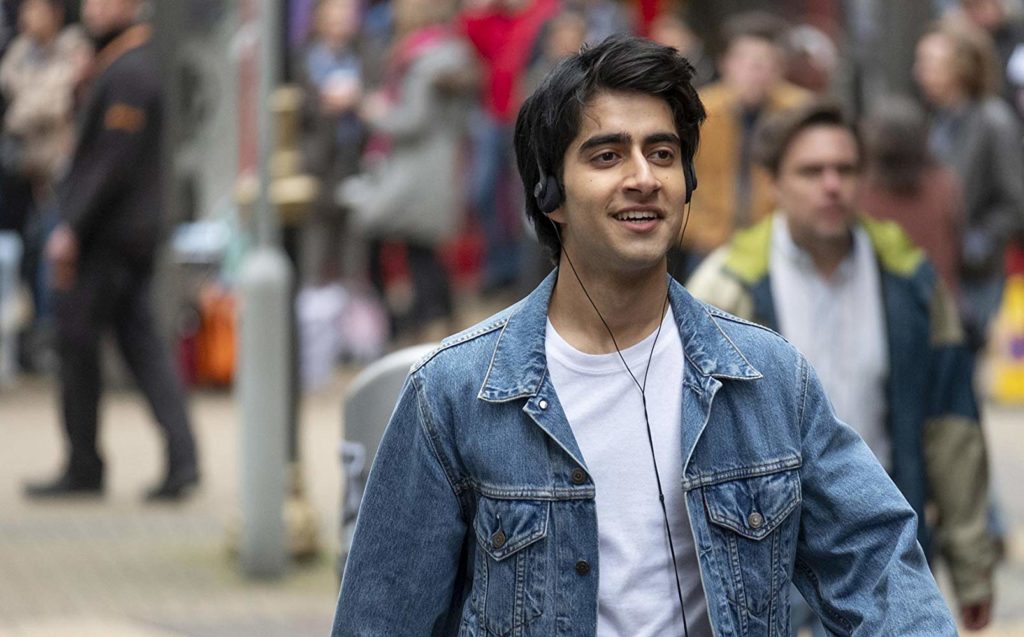
Unfazed, Javed, who is 16, is ambitious aiming to be a writer, which of course denied him the support or approval of his rigid father.
However, when a new friend loans him a few Bruce Springsteen cassettes, Javed’s life is changed forever. The working-class anthems and affirming lyrics speak directly to Javed, emboldening him to find his own voice as a writer, stand up to the racism around him, and challenge his father’s more traditional ideals.
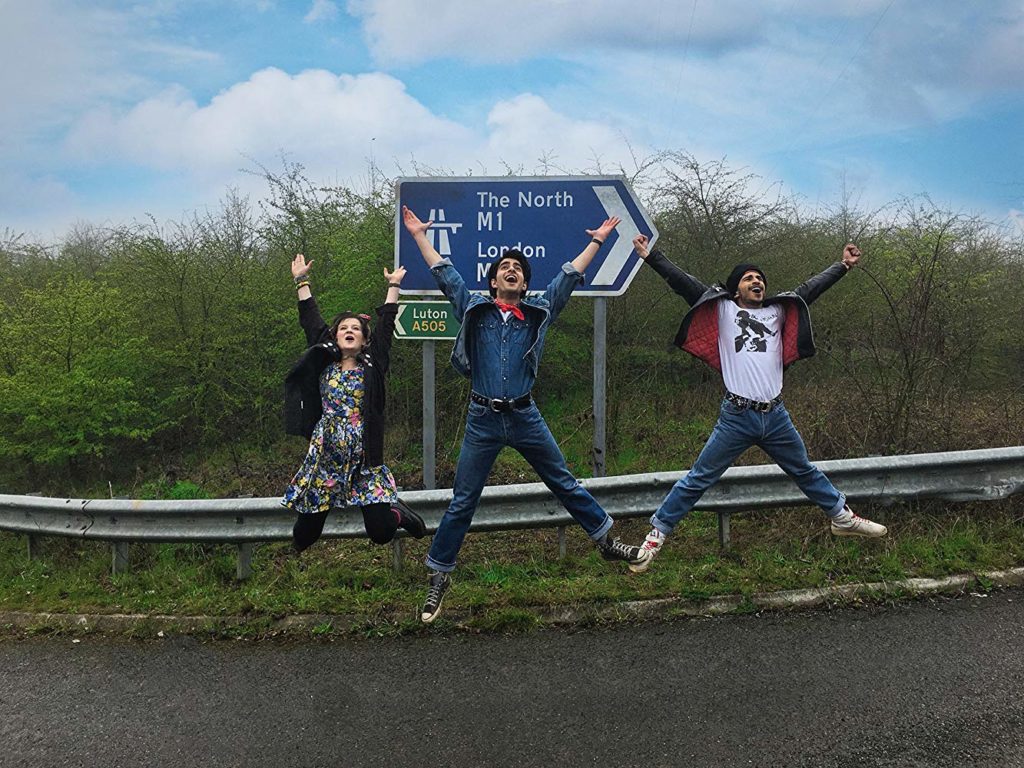
We often hear or read of youths, both privileged and marginalized, who are influenced by art, literature, and music to such an extent that exposure to such works have the transformative power to change lives drastically–though not overnight and not without struggle–by transcending the restrictions of race and ethnicity, social class, and national politics.
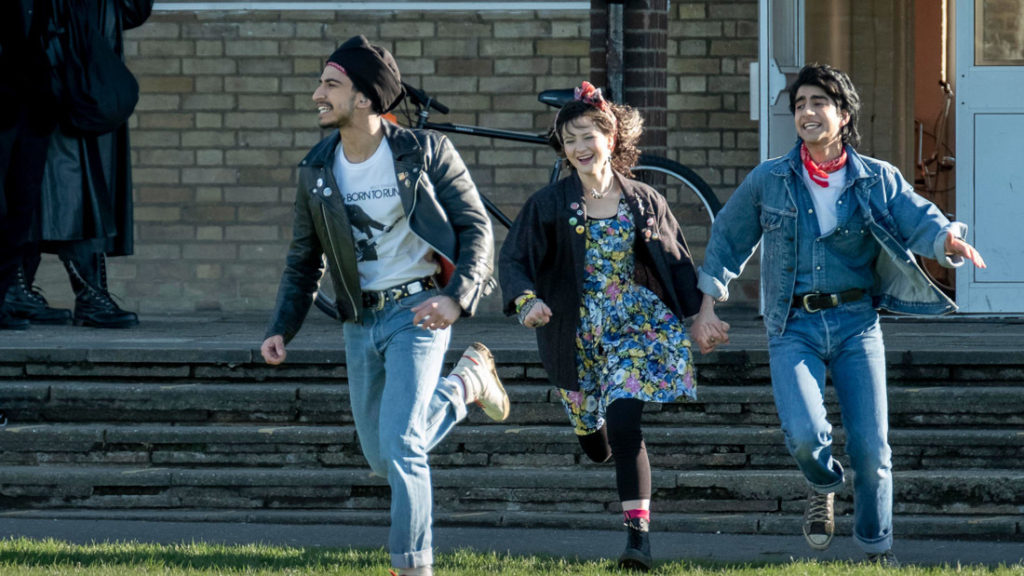
Viveik Kalra, Nell Williams and Aaron Phagura appear in Blinded by the Light by Gurinder Chadha, an official selection of the Premieres program at the 2019 Sundance Film Festival. Courtesy of Sundance Institute | photo by Nick Wall.
It sounds like a cliche to say that the aptly titled Blinded by the Light is a heartwarming and inspiring coming of age saga, containing elements from other similar tales. But by contextualizing her tale in the specific settings of 1980s Britain, Chadha brings out both the particulars and the universals of an engaging tale that elevates it beyond its generic trepidations.



